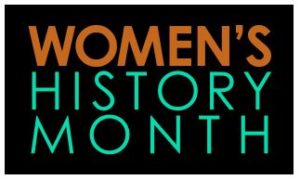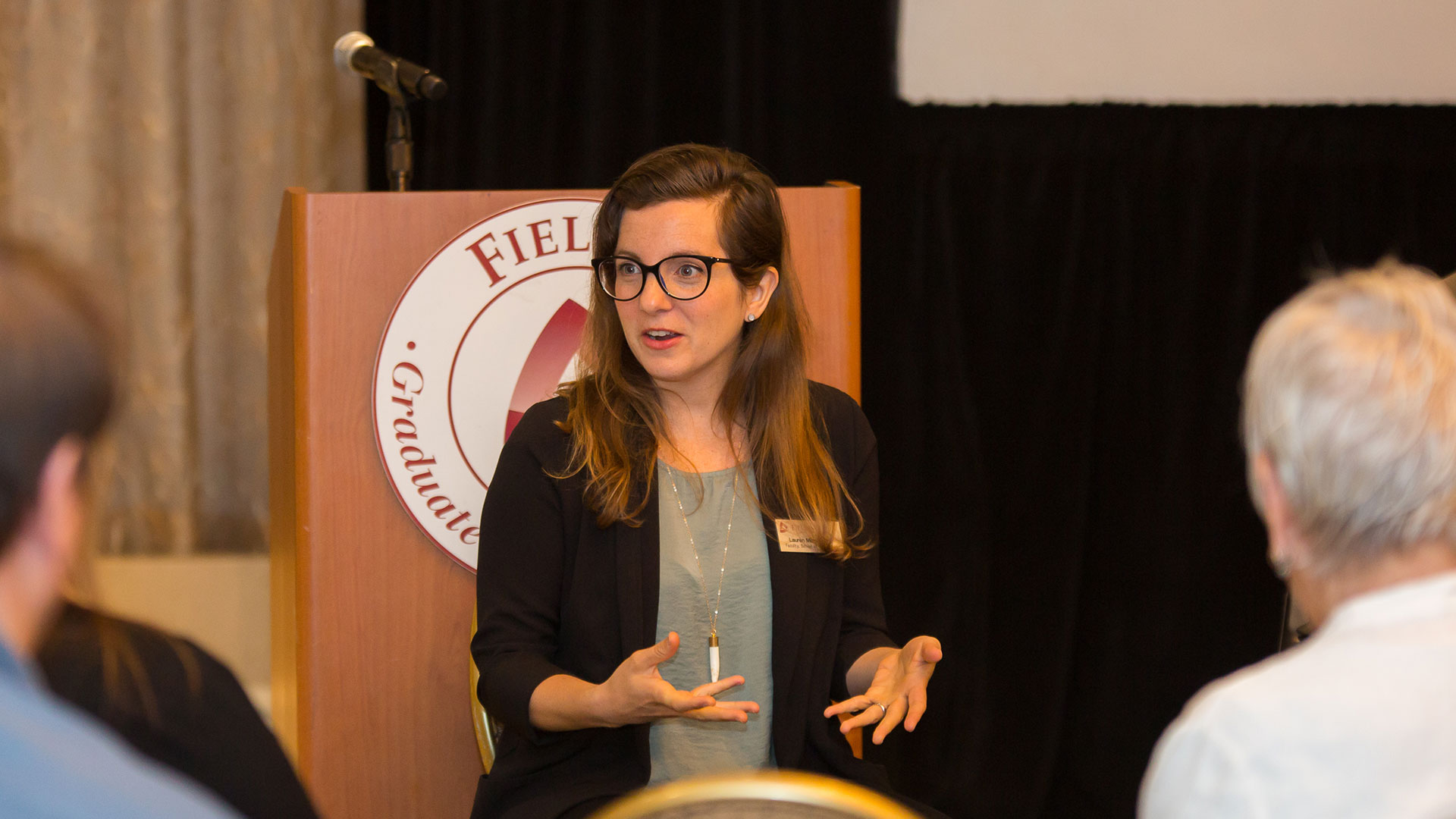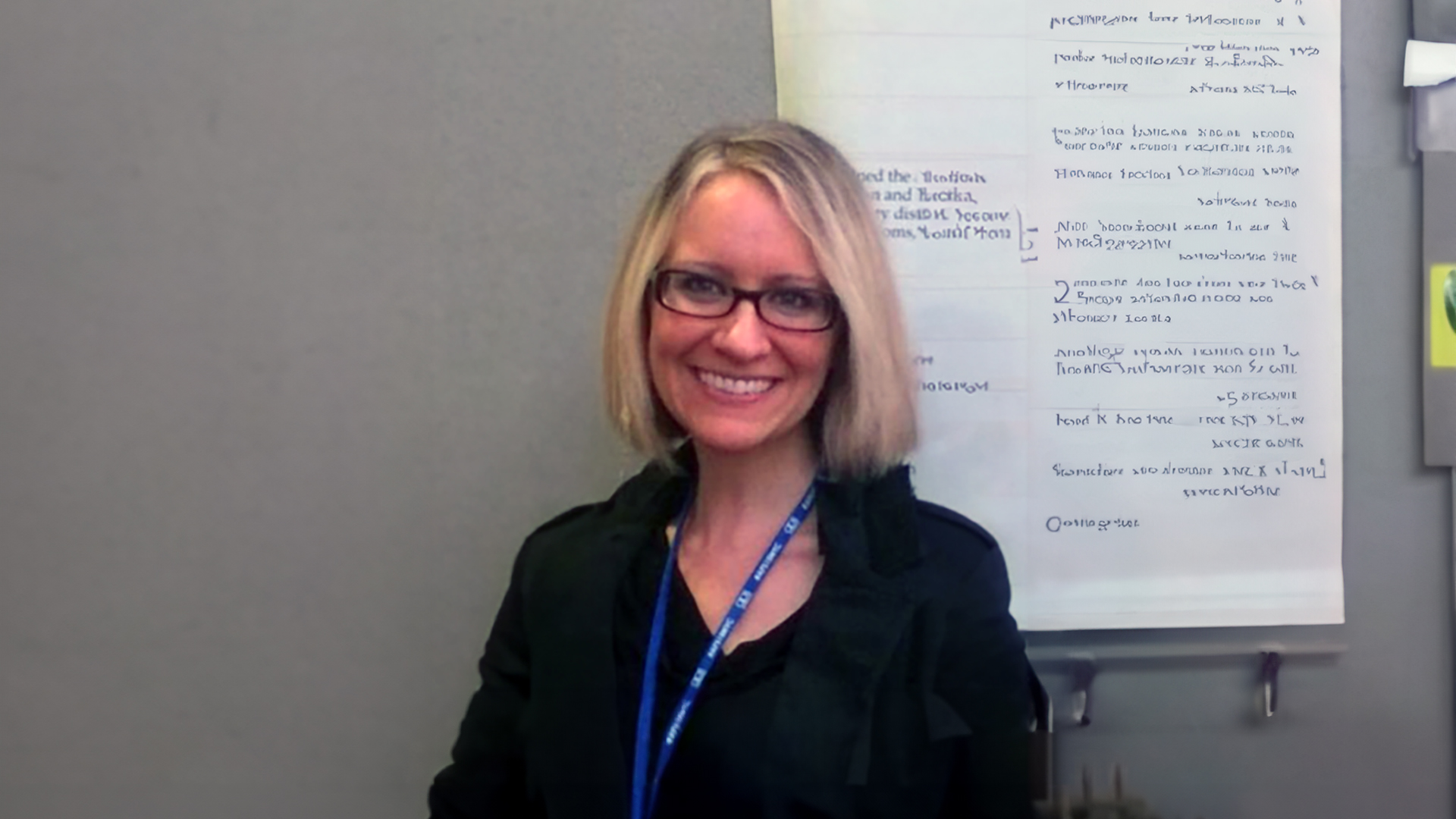 March is Women’s History Month, and as we also celebrate Fielding’s 45th birthday this month, we remember that women have long been leaders at Fielding, from our founding provost Anna DiStefano, to educators Renate Tesch and Marie Fielder to Presidents Sara Miller-McCune, Judith Kuipers, and of course current President Katrina Rogers.
March is Women’s History Month, and as we also celebrate Fielding’s 45th birthday this month, we remember that women have long been leaders at Fielding, from our founding provost Anna DiStefano, to educators Renate Tesch and Marie Fielder to Presidents Sara Miller-McCune, Judith Kuipers, and of course current President Katrina Rogers.

Alum Carrie Arnold, PhD
This month, we invite the community to take part in our Article Club — like a book club, only with less commitment. Simply read this article about research on The Silenced Female Leader by Fielding alum Dr. Carrie Arnold, the recipient of our inaugural Diane Kipnes Fund for Social Innovation in 2018.
Then join in a community discussion about the topic this month; we’d especially love to know your thoughts about Dr. Arnold’s research as it relates to this brand new California law requiring gender diversity on corporate boards.
You can participate in two ways:
- Share your thoughts about the article in the comments section of this post on the Fielding Facebook group, or
- Email your thoughts about the article to media@fielding.edu. Responses will be added with the sender’s name and Fielding affiliation to this blog post, below.
We look forward to a robust and thoughtful discussion!
Thoughts from the community on The Silenced Leader and California’s Gender-Diversity-on-Corporate Boards Law:
I completely agreed with what the author said: “women can be silenced by both peers and supervisors, and equally by men and women.” I particularly appreciate Arnold’s recognition of systematic oppression. That is, as she explains it as a “system of silence” that perpetuates certain values and/or characteristics of leadership over others.
For instance, as a woman in leadership position in a non-dominant culture, my preference is to listen rather than to celebrate self-regard. This is my way of practicing reflective listening as well as humanity. However, I often find that in doing so I am being perceived as weak, passive, or not having the necessary skills to lead. Echoing the author’s observation, over time I silenced myself and intentionally exclude myself from certain decision-making processes because I felt that my thoughts were not heard or valued.
As to the bill to require women on corporate boards in California, it reminds me of the original intention behind affirmative action. To this end, representation is one way of addressing the lack of gender diversity in leadership positions. However, an intentional and sustainable educational plan must happen in tandem to create a cultural shift that would actually unsilence women as well as other marginalized groups. In other words, women can make up the majority of our leadership positions but nothing will truly change if the way in which we operate still reflects the very same values and cultural norms that originally exclude women from the table. — Dr. Dang, Dean for Student Development
I do believe this law will encourage the female voice. I think ensuring women have a seat at the table is critical and this law provides greater access. Female board members need to now fully leverage this opportunity and pay close attention to how they voice, manage self-silencing, and ensure they do not silence other women seated at the same table. It requires awareness of what they have already experienced, what their vision and purpose is, and how they need to pivot with their communication style for this level of leadership responsibility. They also now have a greater platform to surface conversations about systems within the organization that have not always served their gender. If they come to the table silenced – there will not be change.
But if they come using a voice with currency – it will be powerful! I’m excited to see this unfold and hope these boardrooms pay close attention to their own need for collective leadership development. — Dr. Carrie Arnold, alum
Carrie, thank you for making visible a real barrier that women face in the workplace especially but in other parts of our professional lives. Silencing, including self-silencing, seems to be another way that women have difficulty in advancing and in feeling truly empowered at work. So glad to see your research gaining visibility in many sectors. — Dr. Katrina Rogers, Fielding President
Join Over 7,500 Fielding Alumni Located Around The World!
Change the world. Start with yours.™






Get Social